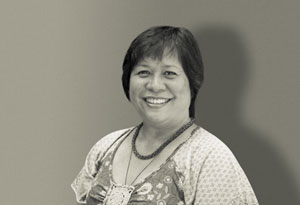What's It Really Like to Live Through Breast Cancer?

Diagnosis: February 2010
You Don't have cancer! You have really bad jet lag. No—you're pregnant! That's why you feel so nauseous and worn out. It's not the chemo, it's pregnancy. You should quit smoking. You can't smoke when you're pregnant.
The bus is so crowded today. Oh my God, lady, get off my toe. You're on my toe! Don't get mad, Renee. Don't be wrathful. You can't say, "We are all children of God" and then call someone a bitch. You don't know what she's going through. Maybe she just got a diagnosis.
When you got yours, you thought, This has to be a mistake. I'm so prayerful. I'm more prayerful than everyone. You talk to God all the time. Dear God, I promise if you spare me, I'll do anything. You shouldn't promise that. What if he told you to go to India, or stand out on 43rd Street in a loincloth, converting people? If he took you up on all the offers you've made, you'd be a nun. You went to Massachusetts, to the National Shrine of the Divine Mercy, and the grotto there was almost as beautiful as the pictures of the original in France. Dear Mother Mary, I promise if you cure me, I will go to the real grotto in Lourdes.
Because you will be cured. You have to be. God doesn't put you through more than you can bear. In the past six months, he's taken Dad, Victor's job, your health. God, I feel like Job. You've put me through so much. He must know you can handle it. People tell you there's a reason. "Everything happens for a reason," they keep saying. You don't get cancer for the heck of it. It took you and Victor so long to have children, but God gave you Alexa and Jade, didn't he? You prayed for a good oncologist, and Dr. Oratz is fantastic. The clinic is so pretty. You can order in lunch from the restaurants nearby. It's close to the office, just six blocks from the Ford Foundation's building. None of the patients even talk about cancer. They talk about which beach they're going to this summer.
Not that you have cancer. You don't! When you first sat down in the big beige recliner and they tried to tell you how the treatment could cause dizziness, diarrhea, constipation, an allergic reaction, a trip to the ER—you cut them off and told them, "That's not going to happen." And you were right. Your hair may be gone—the hair on the back of your hands fell into the sink as you washed them, and you woke up one morning without eyebrows—and your fingernails are cracked from bed to tip and are held together with nail polish, and you can barely keep a thought in your head, but none of the other stuff they warned you about happened. So you were right.
And would a cancer patient eat like this? Mom has been so good, making all the Filipino food you love when you come home at night. Everything fatty and oily and fried. Maybe she'll make dinner tonight. Would a cancer patient eat tubs of drugstore beef jerky and bags of pork rinds on the bus? Would a cancer patient ride the bus all the way home to Queens? The lady on your toe is staring at the beef jerky. The smell is filling up the bus. The bus driver says there's no eating allowed. Just pretend not to understand English. He'll give up. Dr. Oratz pulled you aside at the clinic when you ordered in a cheeseburger: "Think of the other patients," she said. "Not everyone can eat that." Some of the others were so nauseous they could barely eat at all. But not you. You're not a cancer patient. You're just you, with less hair. You're just you, with a free Brazilian.
You even go to parties. You had the lumpectomy on a Friday and went to a birthday party on Saturday. Sure, you paid for it—your drains filled up with blood, you were exhausted—but you went to that party. You didn't even look at the incisions. You barely noticed them. When you had your sutures taken out, you asked the surgeon to remove the Sharpie mark she'd made—the black line that went across your ribs like a big smile—and she asked what line you meant and you pointed. Her eyes got big and she said, "That's your incision, Renee. We opened up your body. We removed a lot of tissue." You'd been putting bandages on your little drainage hole, thinking that was where she'd cut. It was only surgery. You're strong. You're not afraid. There's nothing to be afraid of.
So stop being afraid.



